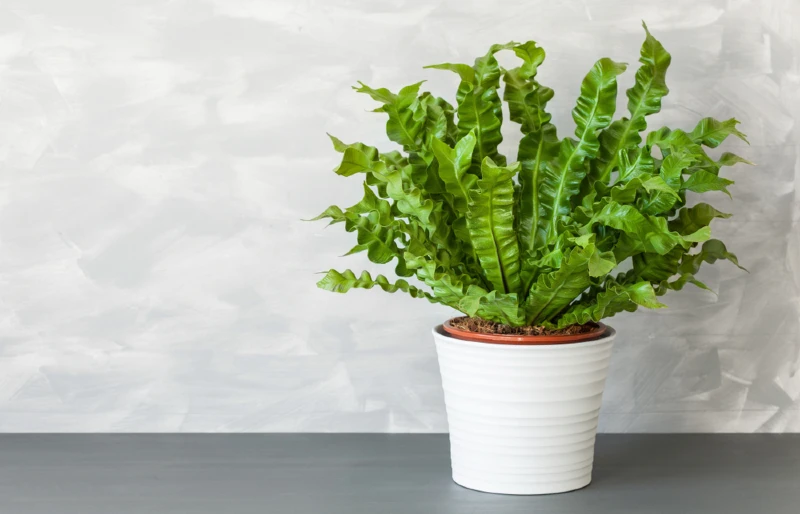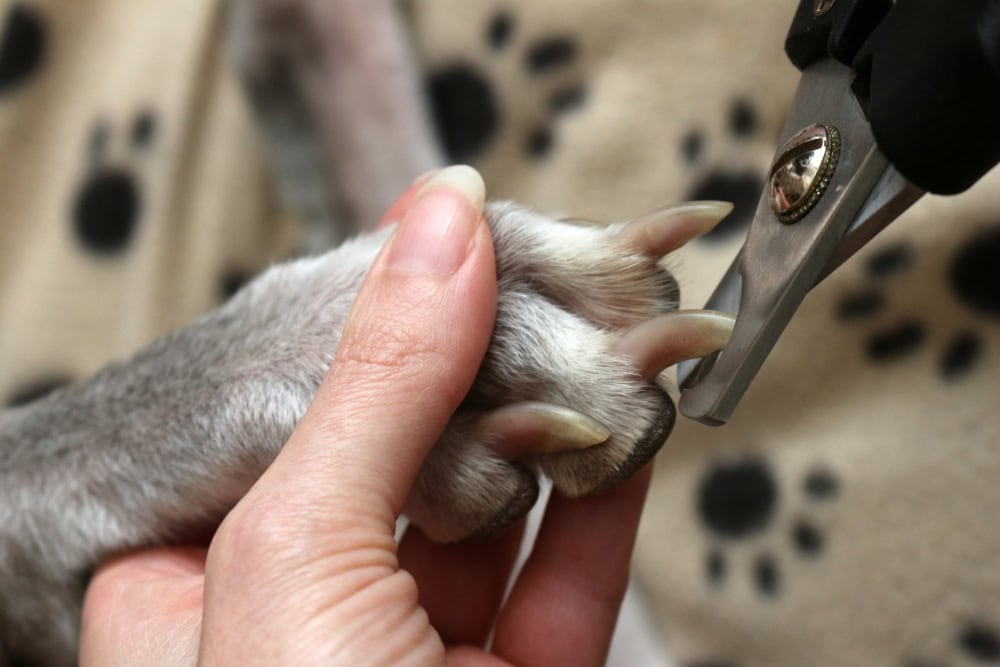Short Haired Border Collie: Pictures, Info, Temperament & Traits

Updated on
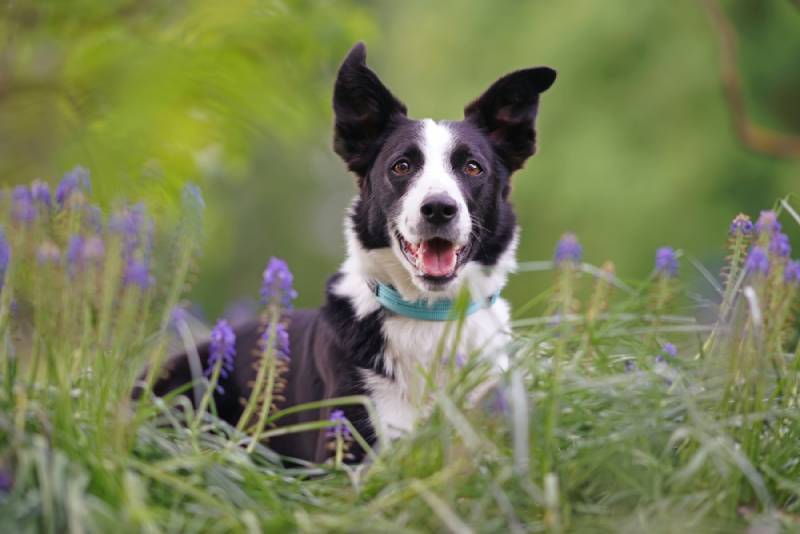
| Height: | 19 – 22 inches |
| Weight: | 38 – 45 pounds |
| Lifespan: | 12 – 15 years |
| Colors: | Blue, honey sable, sable, black, red, white, chocolate, liver, tri-colored, and various merle shades |
| Suitable for: | Active singles or families looking for dogs that are also active and full of energy |
| Temperament: | Affectionate, loyal, easy to train, and mild-mannered |
The Short Haired Border Collie is a medium-sized dog, with a well-proportioned body and long legs. They have a distinctive black and white coat but can also be found in other colors such as red, blue, and merle. The Collie’s coat is smooth and short, making it easy to maintain. They have a broad head with a strong jaw, and their ears are medium-sized and erect.
Short Haired Border Collies are athletic and agile, making them perfect for activities such as agility training, flyball, and frisbee. They have a high energy level, and require plenty of exercise to stay healthy and happy.
The Short Haired Border Collie is a breed that has been around for centuries. They were originally bred in the British Isles, where they were used to herd sheep and other livestock. The breed’s name comes from the fact that they were originally bred along the border between England and Scotland. The Short Haired Border Collie is a descendant of Old Hemp, a black and white Border Collie who is considered to be the father of the modern breed.
The Short Haired Border Collie was first recognized as a breed in 1906 by the International Sheep Dog Society. Today, they are one of the most popular breeds in the world, known for their intelligence, loyalty, and remarkable herding abilities.
Short-Haired Border Collie Breed Characteristics
Short-Haired Border Collie Breed Puppies
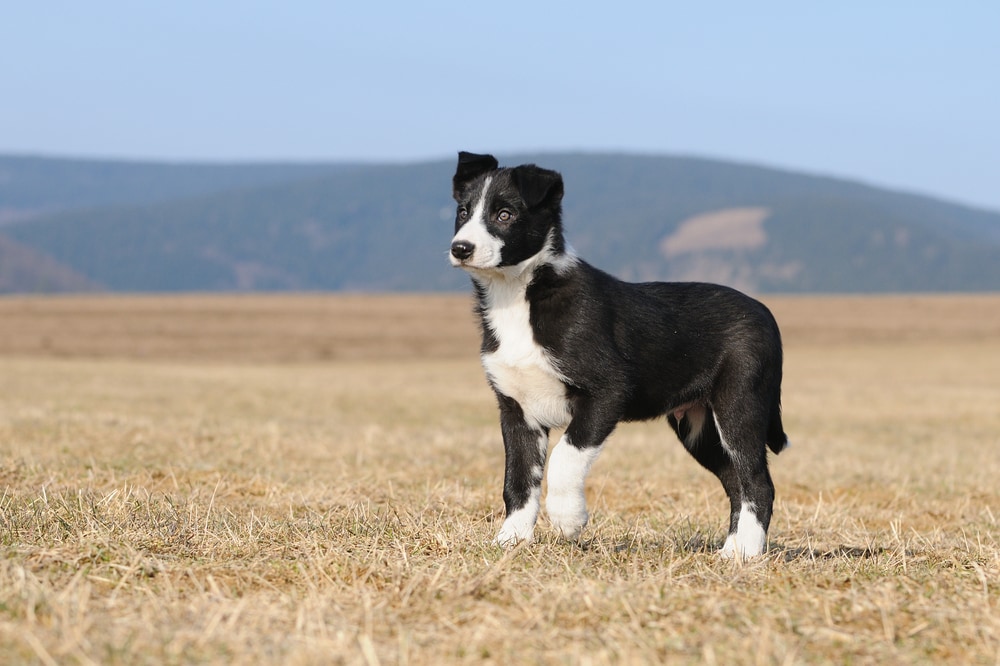
These purebred dogs make for fun-loving puppies, and they can be trained as young as 6–8 weeks of age. These small dogs are active, curious, and very affectionate. It may take a bit of patience to train them as puppies, at least for the first few weeks, as they have short attention spans. So, training sessions of 5–10 minutes may work best at the beginning. Collie puppies will eat about 1 ½ to 2 cups of kibble twice a day on a daily basis. This will increase as the weeks go by and will vary depending on their size, weight, and daily physical activity.
Temperament & Intelligence of the Short-Haired Border Collie
Are These Dogs Good for Families? 👪
Short Haired Border Collies are known for their loyalty and affection towards their owners and make excellent family pets. However, they may not be the best choice for families with young children, as their high energy levels and herding instincts can be overwhelming for young kids.
If you’re considering getting a Collie for your family, ensure that they receive plenty of exercise and mental stimulation to prevent boredom and destructive behavior.
Does This Breed Get Along With Other Pets?
Collies are gentle, loving, and easy-to-clean dogs that leave a lasting impression on dog owners who get them. But they require early socialization to ensure that they are comfortable around people and other animals. As mentioned above, the Collie breed was developed to herd other animals. This instinctive behavior can actually lead to conflict within the home. A Collie may jump at sudden movements or chase animals that are close by without proper introduction and socialization.
Remember that Collies don’t usually want to harm the things they herd chase. They are merely able to sense when the animal they pass is not going to run. Even if it isn’t a cow or sheep, their instincts will tell them to stop the animal from running. So, it can be difficult to move a Collie puppy, or an older one, into a home with other pets. But the Short Haired Border Collie is easy to train and can be trained out of this behavior.
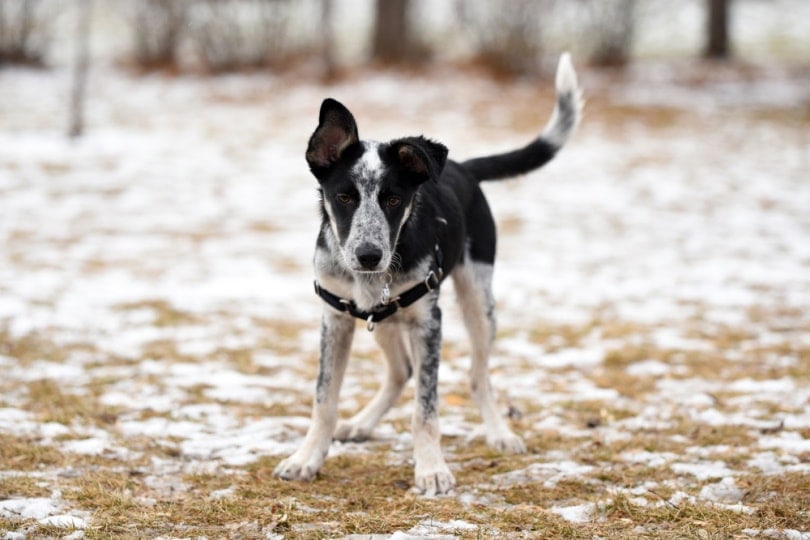
Things to Know When Owning a Short-Haired Border Collie:
Food & Diet Requirements 🦴
The Short Haired Border Collie requires a high-quality diet that is rich in protein and nutrients. They are an active breed and require plenty of calories to support their energy levels. A growing Collie would need 1,400–1,600 calories a day because they’re more active. An average adult should consume 1,000 calories per day to ensure their health and well-being.
When feeding your Collie, it’s important to monitor their weight and adjust their food intake as needed. Overfeeding older Collies can lead to obesity and other health issues, while underfeeding a young and active dog can lead to malnutrition and lethargy. Your vet can help you determine how many daily calories your Collie should be getting at every stage in its life.
Exercise 🐕
The Short Haired Border Collie is a highly energetic breed and requires plenty of exercise to stay healthy and happy. They enjoy activities such as running, hiking, and playing fetch. They also excel at activities such as agility training and flyball, which provide mental stimulation as well as physical exercise.
These dogs may not be well-suited to apartment living, and require a large yard or outdoor space to run and play. They thrive in homes with active owners who enjoy outdoor activities and can provide plenty of exercise.
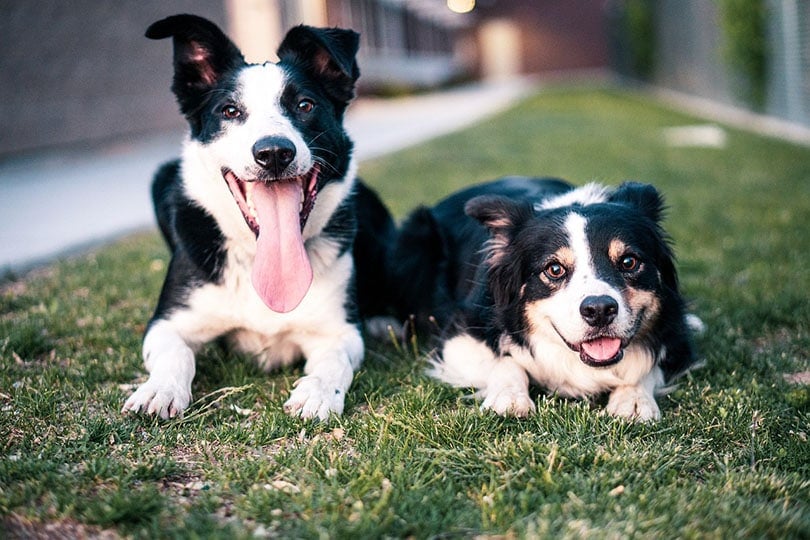
Training 🎾
The Short Haired Border Collie is a highly trainable breed and responds well to positive reinforcement methods such as clicker training and reward-based training. They’re intelligent and eager to please and thrive on mental stimulation as well as physical exercise.
Socialization is also important for this collie. Early socialization will help them to be comfortable around people and other animals and prevent them from becoming overly protective or aggressive. They should be exposed to a variety of people, animals, and environments (like parks and playgrounds) from a young age to ensure that they are well-adjusted and confident.
Here are a few tips to consider when it comes to training this breed:
Start Training Young
You can have a puppy as young as 6–12 weeks of age. Although some dog owners worry about their puppy being too young to begin training, it’s really best to get started as soon as possible. These puppies are sort of like little children and won’t always learn and listen when they should, so patience is the key.
You should begin with teaching your dog how to potty outside the first few weeks they are home. It will save your floors and teach your pup good habits. There will be mishaps but invest in training pads for your dog. You can reward and commend your four-legged friend when they succeed and build a loving relationship with them.
You can also start teaching them basic commands early on, but because puppies are difficult to control, it is best to wait until at least 6 months to teach them more complex tricks. It is important that they listen to you and first understand commands like sit, stay, or go. These commands are more important than any showy tricks in their early years.
Train Them in Short Bursts
As mentioned previously, Border Collies are energetic and can be very short-sighted, especially when they’re young. It’s unrealistic to expect your dog will engage in an hour-long training session with you.
Instead, you can train them in short bursts, with only a few commands per session. Border Collies require a lot of exercise so you can incorporate training into playtime. You can practice some commands while they throw a frisbee.
You can ask your dog to “sit” and “heel,” then commend them for following through and reward them with a favorite toy or ball. You should be aware that dogs can get excited about their toys, and it may be difficult to get them to pay attention to your commands. It is best to work with your dog when they are tired out.
Give Them a Task
You may be able to provide simple tasks for your Border Collie to help you train them. Border Collies love to work and are very motivated. They also benefit from regular jobs that keep them mentally and physically stimulated.
There are many small tasks that you can give your Collie to help them settle into a routine. They can walk your child to the bus stop or walk them home from the bus stop.
Border Collies are herding dogs and will always be able to instinctively follow that instinct. They can be used as pseudo babysitters for your children when they’re outside. You can teach them to recognize the signal that it is time to bring everyone inside. They will love guiding your children into the house. They are also able to carry and transport small items, which can be useful for helping with other tasks.
Use Positive Reinforcement
Border Collies can quickly learn new commands and words. It can take time for a puppy who is excited and wriggly to learn to listen and settle down. It doesn’t matter how tired or how many times it took to get your puppy to listen, praise them when they do well.
Although treats are wonderful, dogs often want our approval more than anything. Verbally praise your dog, and make sure you give them toys. Your dog can sense your voice and facial expressions and know when they’ve done something good.
Grooming ✂️
The Short Haired Border Collie’s coat is short and smooth, making it easy to maintain. They require regular brushing to remove loose hair, and occasional baths to keep their coat clean and shiny.
This particular Collie is a somewhat moderate shedder and may shed more heavily during certain times of the year. Regular brushing can help to minimize shedding and keep their coat looking its best. Here are some other ways to stay on top of your Collie’s grooming.
Brush Their Coat Weekly
A short-haired dog doesn’t require too much grooming, except for bathing and brushing. As the short hair will not cause any problems with mats or tangles, it is recommended that they be brushed at least once a week. They don’t have long hair that could easily become matted or tangled so you don’t have to worry about brushing a short-haired dog multiple times per day.
The brushes are simple and inexpensive for short-haired dogs like these. Use a soft brush to brush the dog’s hair to remove any dirt or debris. Be careful when using slicker brushes on these short-haired dogs, as brushing too roughly can damage the skin and hair follicles.
Check Their Ears Regularly
Regular at-home ear exams for short-haired dogs will help you to detect potential problems before they become more serious. These Collies have medium-sized floppy ears that need to be cleaned regularly to prevent infection from bacteria, parasites, and pests like fleas and ticks.
Ear problems can also be caused by foreign objects, allergies, or other underlying conditions. Allergies can lead to inflammation of the skin and ear canals. Foreign objects can also cause infection. To clean your dog’s ears, you can use a cotton bud or a small towel to gently wipe them out. You can also use products like Epi-Otic to help clean them out.
Clip Their Nails
Collies should have their nails trimmed on a regular basis, about every 3-4 weeks. Be careful when trimming your dog nails for the first time. It’s best to take note of how low the groomer trims the nails to get an idea of how little they should be. Typically, you’ll want to cut within about 2 mm of the quick. This is so that when the dog steps down on the floor, its nails don’t actually touch the floor before the paw pads. Be careful not to actually cut into the quick as this will cause the dog’s claw to bleed.
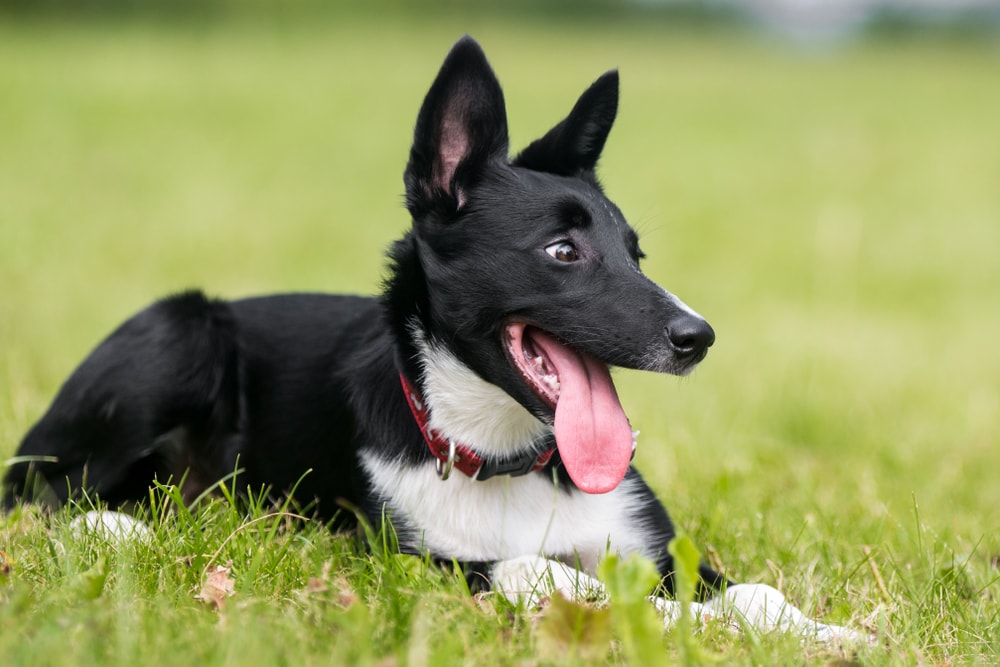
Health and Conditions 🏥
Like all breeds, the Short Haired Border Collie is prone to certain health issues. Some of the most common health concerns in this breed include:
- Dental disease
- Ear infections
- Diarrhea and vomiting
- Collie eye anomaly
- Epilepsy
- Osteochondritis dissecans
- Progressive retinal atrophy
Collie Eye Anomaly
Also known as CEA, this is an inherited condition that affects all Collie Breeds. It’s caused by mutations in one of the genes that regulate the development of the eye. The condition can cause blindness but not always. Unfortunately, this disease isn’t curable, but many breeders pre-screen potential parents with a genetic test to lower your dog’s chance of getting it.
Epilepsy
Collies can also be susceptible to canine epilepsy, which is a neurological condition that causes seizures in dogs. Dogs may experience seizures as early as 6 to 7 months old, depending on their epilepsy type. You should seek medical attention immediately if your Border Collie exhibits any epileptic episodes or convulsions. Your veterinarian might be able to recommend anti-epileptic medication to help your dog.
Osteochondritis Dissecans
Osteochondritis dissecans is a condition in which a dog’s cartilage becomes detached from its underlying bone. This developmental disease typically manifests itself during periods of rapid growth. It usually occurs between about 6 and 9 months. It can cause a dog to become immobile or lame in one leg and it can also cause severe pain for your dog. With this condition, you may notice excessive swelling and inflammation or that your Collie is having trouble putting on weight. If you do, you should make an appointment with your vet as soon as you notice any signs of the condition.
Progressive Retinal Atrophy
Progressive retinal atrophy, or PRA, refers to a group of degenerative diseases that can cause vision loss in Border Collies. This condition is often passed down from generation to generation. This is why it’s important to find a reliable Border Collie breeder in order to reduce your puppy’s chance of developing PRA.
Your dog may lose some vision at night, which could be a sign of aging – and this may eventually lead to complete blindness. The degeneration can happen very quickly, with some dogs experiencing complete blindness within one year. Unfortunately, there is no cure for progressive retinal degeneration.
Dental Disease
Oral infections are the most common disease in dogs and can become a problem after 3 years. Gingivitis and tartar are two of the most common issues with dogs’ teeth. Abscesses, which is a more serious form of periodontal disease, tend to be more prevalent in older dogs. Discolored gums and teeth, bad breath (more than normal for dogs), and lumps under or on the tongue are all signs of dental disease.
Dental disease can be treated with teeth cleaning, root canals, and extractions. Regular vet visits are the best way for your dog to maintain good oral health. You can also ask your groomer to clean your pet’s teeth if they offer this service as part of their grooming package.
Ear Infections
Your Collie may also suffer from recurring ear infections. The most common allergens in their diet are wheat, corn, and soy. Ear infections are more common in dogs with large, floppy ears. They can be detected if your Collie is scratching or shaking his head against furniture or the floor. Redness around the ears, crusts, scabs, and balance problems are all possible signs. First, clean and dry your dog’s ears if possible. Next, take your Collie to the vet for an exam. Your vet will examine your dog to determine the type of infection. If it is a skin or ear infection, topical antibiotics and antifungals are the most common treatment choices.
Diarrhea and Vomiting
Dogs can experience digestive problems from time to time, just like humans. These issues usually resolve within a few days. But if your Collie experiences diarrhea or vomiting frequently, or if either one or both of these symptoms persists, you should immediately contact your vet. A more serious condition could include persistent vomiting or diarrhea. Parasites, viruses, intestinal worms, and parvovirus are all illnesses that can cause intestinal upset in dogs. Your vet will diagnose the problem and determine the best treatment.
 Male vs Female
Male vs Female
Other than obvious differences in size, male Collies may be a bit taller and heavier than females. And some of the differences may come from slight differences in behavior. For example, unneutered male Collies are typically more prone to urine marking, roaming, and humping other dogs than female dogs. Female dogs, on the other hand, may be tempted to run away from home and search for mates if they are not spayed. You may also find that these Collies will also have different biological gender-specific health issues at some point, such as prostate or mammary concerns.
 3 Little-Known Facts About the Short-Haired Border Collie
3 Little-Known Facts About the Short-Haired Border Collie
1. Collies Have Two Coat Types
The “rough coat” is of medium length and has a more feathered appearance, while the “smooth coat”, is shorter and coarser, as is the case with the Short Haired Border Collie. However, both coats are weather-resistant, double-coated, and are fairly dense.
2. The Collie Was Bred to Herd Sheep and Cattle
Border Collies were originally developed to work with cattle and sheep, but many are still used as farm dogs all over the globe. These dogs are well-suited to the task because of their speed, agility, and strong herding instinct. Their name actually refers to the region where they were most commonly bred and worked: the border regions of Wales and England.
3. Collies Are Known for Their Agility
Collies are great when it comes to agility. According to the American Kennel Club (AKC), Border Collies often make it to the top in formal agility competitions. This is mostly due to their intelligence and the fact that they can be easily trained to do tricks.
Final Thoughts
The Short Haired Border Collie is a unique and remarkable breed that requires plenty of exercise, mental stimulation, and socialization to thrive. These dogs are highly intelligent and trainable and make excellent companions for active owners who enjoy outdoor activities. So, if you’re considering getting one of these Collies, be prepared to provide plenty of love, attention, and care to ensure that they remain healthy and happy for years to come.
See also:
Featured Image Credit: Eudyptula, Shutterstock





